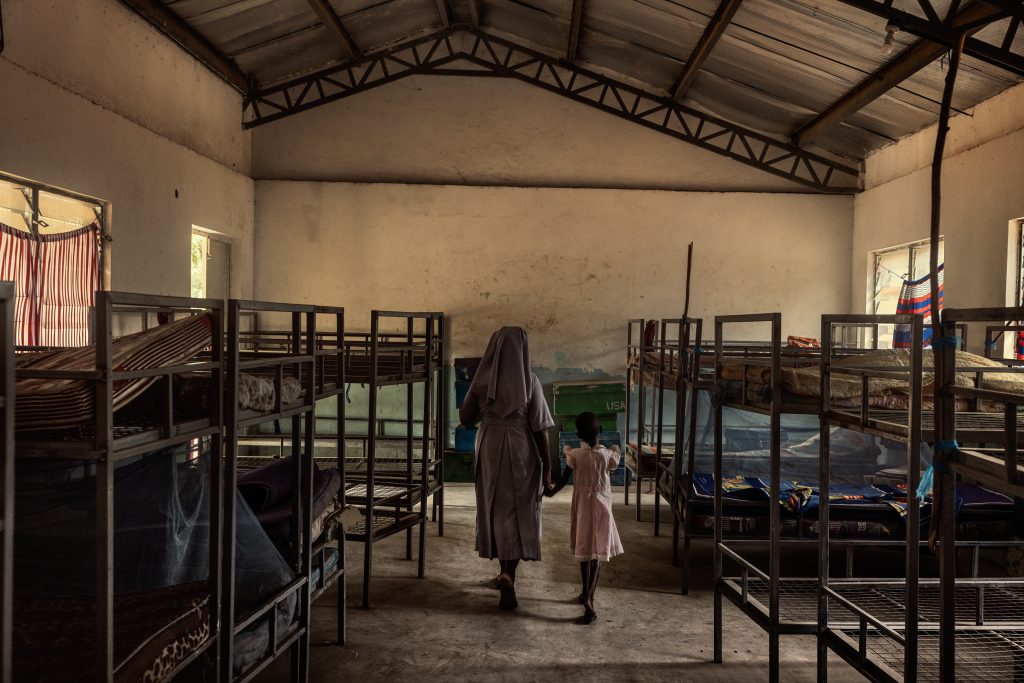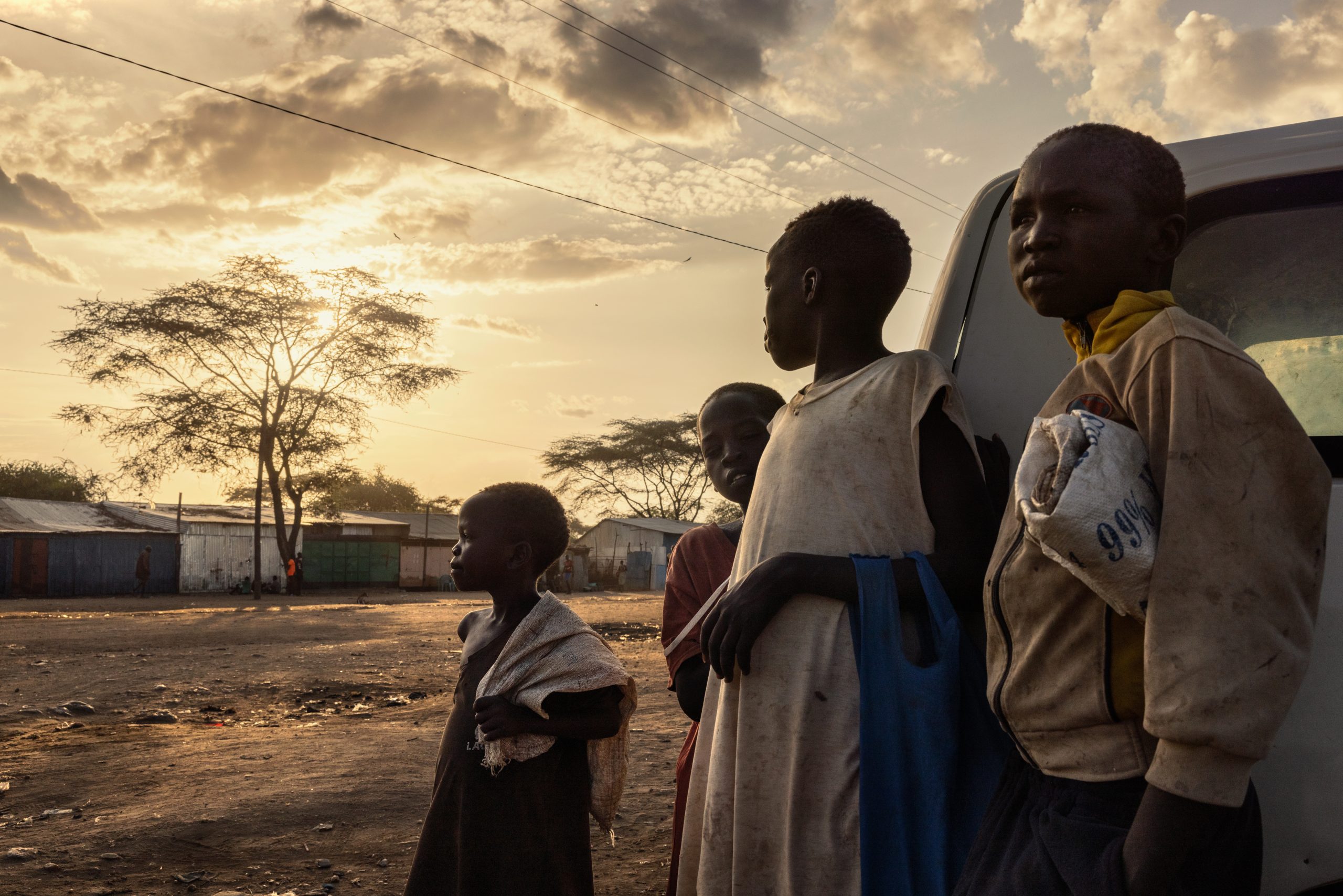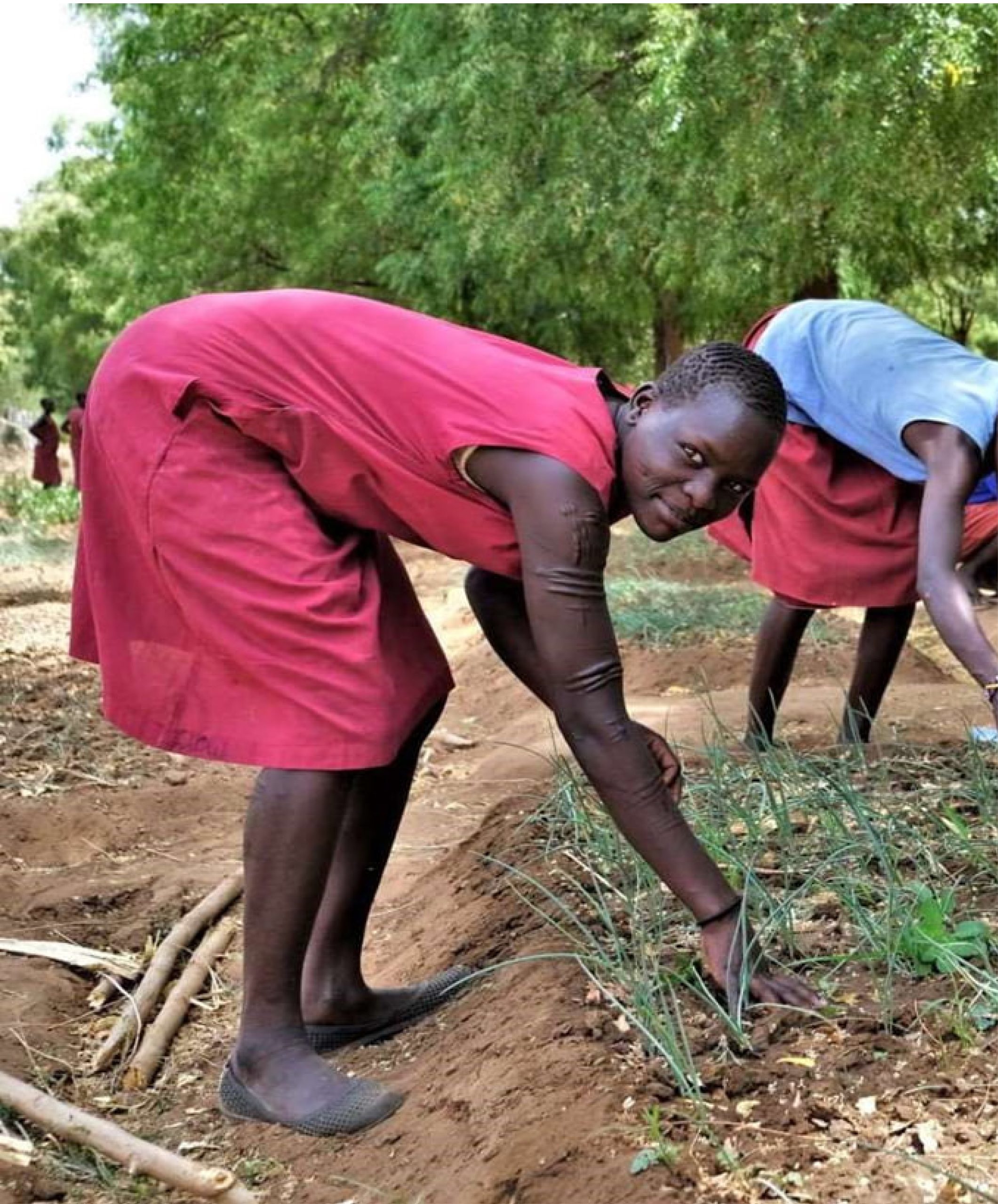AVSI in South Sudan
- Juba HQ
- Yei Office
Old Mission Road, Hai Mission
Yei Town Boma, Yei River County, Central Equatoria State - Eastern Equatoria Torit Office
AVSI Compound, Imotong Road
Phone: +211 (0) 921586633 - Offices related to Torit:
- Magwi, Kilio Boma house n. 55 first class residential area, Magwi Town, Magwi County, Eastern Equatoria State
Phone: +211 (0) 921586633 - Nimule, Nimule Town, Magwi County, Eastern Equatoria State (close to Nimule Hospital)
- Kapoeta Office
Kapoeta Municipal Council, Palakal Residential Area,
Kapoeta South County, Eastern Equatoria State
Tel: +211 (0) 925123838 - Offices related to Kapoeta:
- Riwoto, St. Mary Magdalene Secondary School, Riwoto town, Kapoeta North County, Eastern Equatoria State
- Narus, Dot compound, Narus town, Kapoeta East County, Eastern Equatoria State
- Nachodokopele, Nachodokopele field base, Kapoeta East County, Eastern Equatoria State
- Isohe Office
AVSI compound in Isohe
Phone: +211(0)92220768 - Lakes State Rumbek Office
Malual Akan, Rumbek Center,
Phone: +211(0)922990035 - Offices related to Rumbek:
- Cueibet Office: Women Union Compound
- Yirol West, Yirol town, Yirol West County, Lakes State
(close to the RRC office) - Rumbek North, Maper, Rumbek North County, Lakes State
Education, nutrition, and food security take center stage in the context of South Sudan, where AVSI assists the population adopting a field-based approach and accompanying them in establishing mechanisms and enabling conditions that facilitate transition from emergency relief to long-term resilience.
Engaged in emergency and developmental interventions in the actual territory of South Sudan since 2005 our focus in ”The world's youngest nation” lies in fostering community development. Through education, food security and livelihood, and nutrition projects, we address various challenges, including gender-based violence, peacebuilding, and the inclusion of vulnerable populations.
The humanitarian crisis in South Sudan
Since 2013, South Sudan has been trapped in an ongoing conflict, leading to one of the most significant global food crises. Political instability, famine, severe droughts, and persistent flooding exacerbate the nation's dire circumstances. A severe humanitarian emergency impacts over 9 million people, including 4.6 million children. Traditionally rooted in tribal and pastoralist disputes, inter-communal conflicts persist among the 64 ethnic groups such as Dinka (40%) and Nuer (20%). Levels of violence, exploitation, and abuse, including conflict-related sexual violence, gender-based violence, and escalating child protection concerns, are distressingly high. The 1.9 million internally displaced persons (IDPs) constitute the world's fourth most neglected displacement crisis. Simultaneously, South Sudan grapples with Africa's largest refugee crisis: over 1.9 million South Sudanese refugees are hosted in neighbouring countries (source: South Sudan: Humanitarian Needs Overview consulted on June 2024). Moreover, the Sudan conflict that erupted in mid-April 2023 has led to an unprecedented wave of returns and arrivals, supplementing the refugees already within the country.
The security situation continues to deteriorate, with heightened inter-communal violence resulting in civilian casualties, fresh displacements, and a highly insecure environment for aid workers. Compounded by climate change impacts, macroeconomic shocks, and the reverberations of the conflict in Sudan, South Sudan finds itself sinking deeper into its worst humanitarian crisis since independence.
From emergency relief to long-term resilience: AVSI commitment in South Sudan
AVSI's engagement in South Sudan traces back to 1992, when the territory was still under the Soudanese government involved in the conflict with the Sudan People's Liberation Army (SPLA).
Throughout the 1990s, AVSI provided active assistance to individuals in Uganda and extended this support to those who were fleeing Uganda and relocating to what was still the Southern region of Sudan. In 2005, AVSI established its inaugural field office in Isohe (Eastern Equatoria state) within the territory that would later become South Sudan, achieving independence in 2011.
Today, AVSI operates in Eastern Equatoria, Lakes, and Central Equatorial states, improving nutrition, enhancing livelihood opportunities, combating gender-based violence and responding to protection issues such as girl-forced marriages.
In all areas of intervention, the milestone of AVSI's work is education, with initiatives including school construction and improving the education system to ensure equitable access to quality education, particularly in challenging and remote regions like the Greater Kapoeta Region.
So far AVSI has developed a profound understanding of the local context and communities and supports South Sudan's shift from a prolonged emergency situation to resilience by enhancing local communities' ownership, empowering them, and strengthening their current resources with a multi-stakeholder approach.
Breaking cultural barriers: AVSI's education initiatives enhancing school access across urban and remote areas
AVSI is committed to providing equal and high-quality education, spanning from early childhood to technical vocational training (TVET), to overcome traditional and cultural barriers and ensure inclusivity, enabling youth to transition effectively into the workforce.
AVSI’s reinforcement of existing educational institutions, is accompanied by raising teaching standards through comprehensive teacher training programs for long term results. In addition to supporting nearly 50 schools across three states in South Sudan (Eastern and Central Equatoria and Lakes), AVSI addresses social and traditional obstacles to education through long-term awareness interventions engaging local communities directly. Furthermore, AVSI conducts training for parent-teacher associations (PTAs), supplies teaching and learning materials, and establishes "help desks" for psycho-social support through partnerships with local and international organizations.
Through these initiatives, AVSI provides holistic support including health, shelter, feeding, childcare, and parental services, fostering safe learning environments for children in remote areas.
In South Sudan, many schools lack support from governmental institutions and rely solely on yearly contributions from students. However, with the worsening economic situation, most parents are unable to afford these fees, resulting in a lack of financial support for schools. To address this issue one of the primary forms of support provided to students and schools is the payment of school fees. One of AVSI's key initiative aimed at engaging South Sudanese youth is the Distance Support Program. Launched in 2015, the program funded by AVSI's private donors not only provides direct financial support but also focuses on increasing access to education by assisting young people's families and conducting awareness campaigns. Additionally, the program promotes peaceful coexistence among youth through recreational activities.
Empowering communities through school gardening
In 2017, AVSI initiated school gardening programs in three schools within the Greater Kapoeta Region, integrating them into the educational curriculum.
The school garden initiative not only enhances agricultural knowledge but also diversifies diets, encouraging the consumption of a variety of foods beyond traditional staples like sorghum. The school gardens consist in the establishment of a dedicated area for cultivating vegetables and crops on the school grounds where the teaching of agricultural methods takes place. The practices learnt in school by students can be easily replicated at home, ensuring both food availability and the ability to educate students' families.
By becoming self-reliant in food production, the school no longer relies on humanitarian aid for feeding programs, thus encouraging families to send their children to school and guaranteeng food to students hosted in the boarding school even during school breakes.
The school gardens serve as educational platforms, promoting a more comprehensive understanding of nutrition among students and the broader community. As students share their knowledge with their families, these practices become part of their daily life, improving the overall nutrition and health of entire households.
The boarding school initiative: comprehensive support for child well-being in remote areas
The school garden initiative is part of a larger strategy aimed at bolstering boarding schools to make them safe environments where children, especially girls, can learn and grow safely. Daily meals provided by the schools have led to improved attendance and garnered support from parents who start recognizing the positive impact of these institutions on their children's education and future.
Supporting boarding schools contributes to address health, shelter, nutrition, childcare services, and protection, including assistance for gender-based violence.

In addition to direct support to boarding school, AVSI inaugurated the Good Sheperd Day – Nanyangachor Primary School in 2023 in one of the remotest area of South Sudan where the Toposa ethnic group lives. Adopting a pastoralist way of life, they regularly migrate with their herds to "cattle camps" in search of water, leading to the relocation of the entire community. Children, youth, and women follow the men, with some even establishing semi-permanent settlements far from any urban center. This lifestyle centered around livestock contributes to a notable prevalence of illiteracy among Toposa children. In 2017, Toposa pupils comprised less than 20% of the school population. The implementation of measures such as providing scholastic and teaching materials, boosting teacher motivation, rehabilitating school facilities, and mobilizing the community has resulted in a substantial increase in enrollment, reaching nearly 70%.
AVSI response to climate change and food insecurity through agriculture and WASH initiatives
South Sudan faces a severe food security crisis as a result of decades of civil conflict, political instability and the effects of climate change.
Endowed with vast expanse of fertile arable land, the main livelihoods activities of the people of South Sudan is agriculture, where the people engage in the subsectors of crops, livestock and to a lesser extent fishery and agroforestry.
But the current scale of production and farming practices are not meeting the food demands of the South Sudan population, leading to dependency on food imports and aid rations. The predominant underlying causes of the poor performance of the farming system are poor quality of inputs, low level of mechanization, adverse effects of climate change and limited knowledge on adaptation and good agronomic practices.
AVSI is integrating innovative models and climate smart agricultural practices into the farming systems especially at critical value chain nodes to improve efficiency, increase output and quality.
Strategic investments in agricultural infrastructure, systemic function strengthening, and linkages to good and service points have executed with early benefits emerging in Eastern Equatoria including increased availability of nutrient rich-foods in the local food system, improved food consumption score, and income growth that enables economic access to food.

The delivery of essential WASH (Water, Sanitation, and Hygiene) services to underserved communities further supports livelihoods and improves hygiene and nutrition standards, also where the traditional water sources like rivers are no more available due to droughts.
By building resilience to the adverse effects of climate change, AVSI strives to create a more secure and sustainable future for South Sudan's farming communities.
Peace as the foundation for constructive development
By actively engaging in conflict resolution at the grassroots level and integrating peacebuilding into all its interventions, AVSI contributes to local-level peacebuilding efforts. Encouraging neighbouring community members to enroll their children in the same schools, promoting participation in peace meetings and conferences, and mediating peaceful coexistence between farmers and cattle-keepers through dedicated land allocation for cultivation are among the many ways AVSI demonstrates its determinated commitment to fostering resilient and sustainable development in South Sudan.










